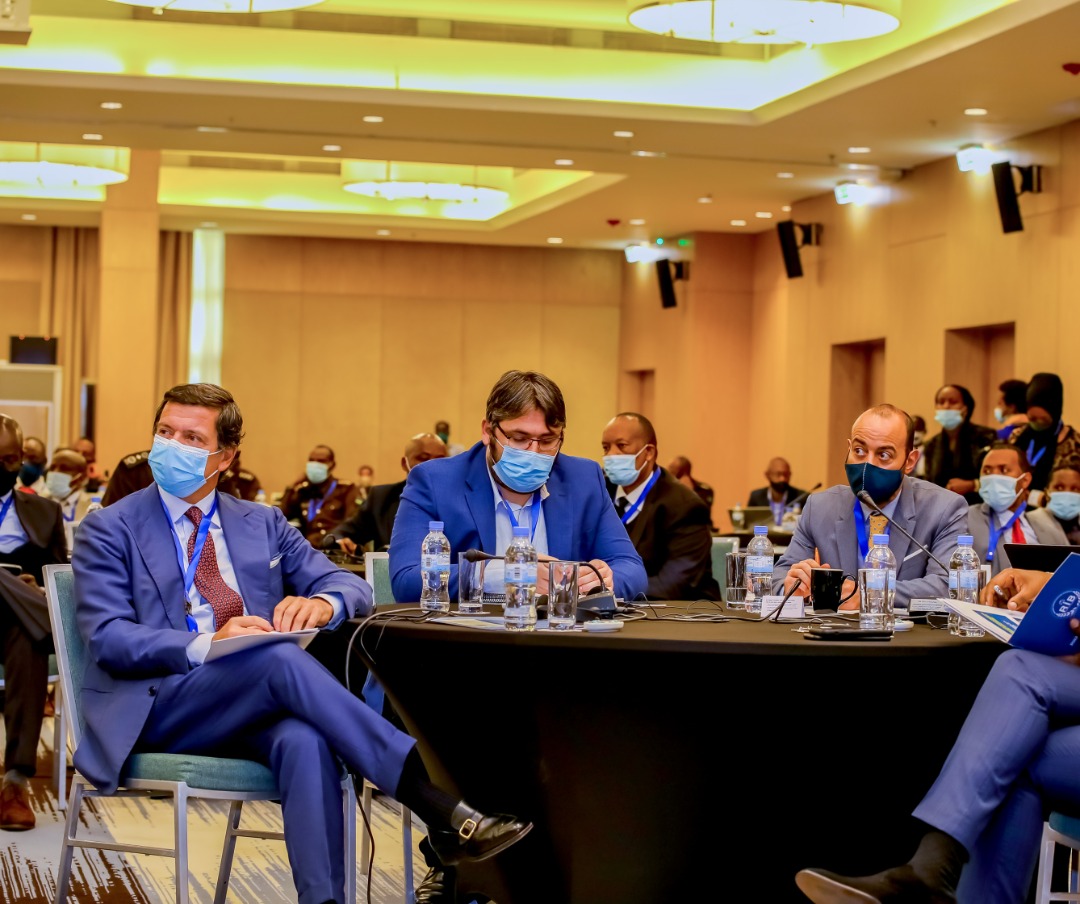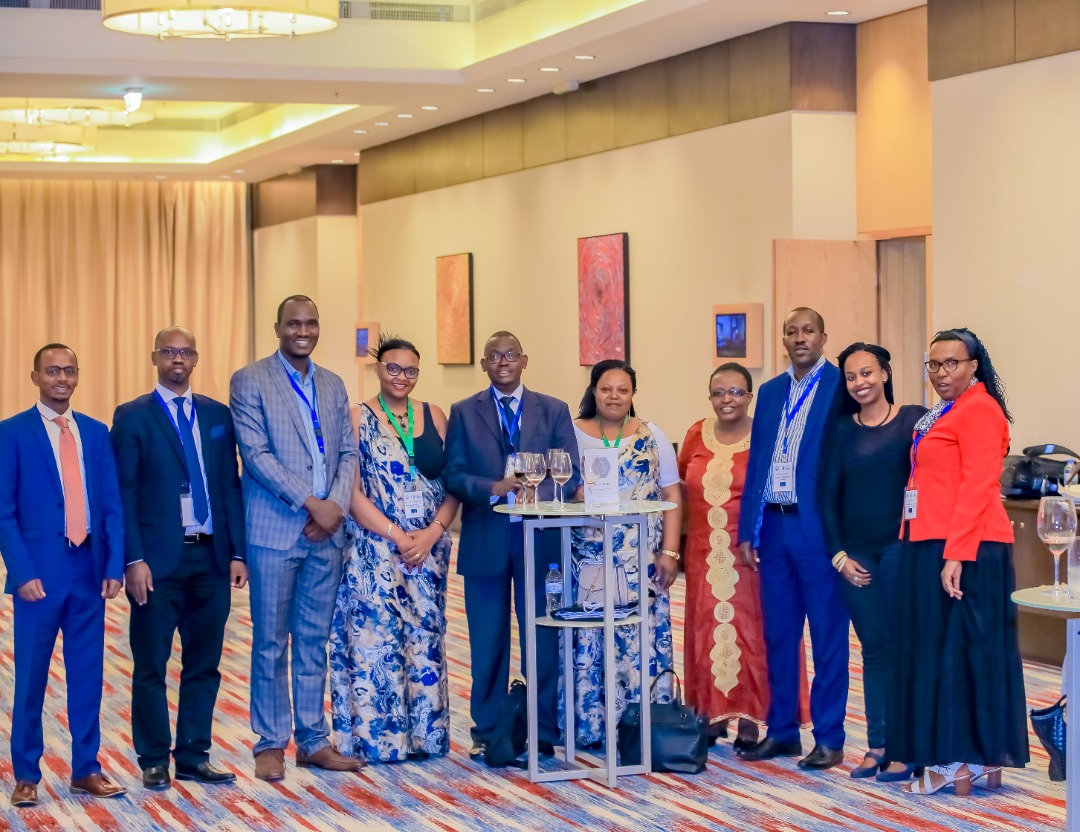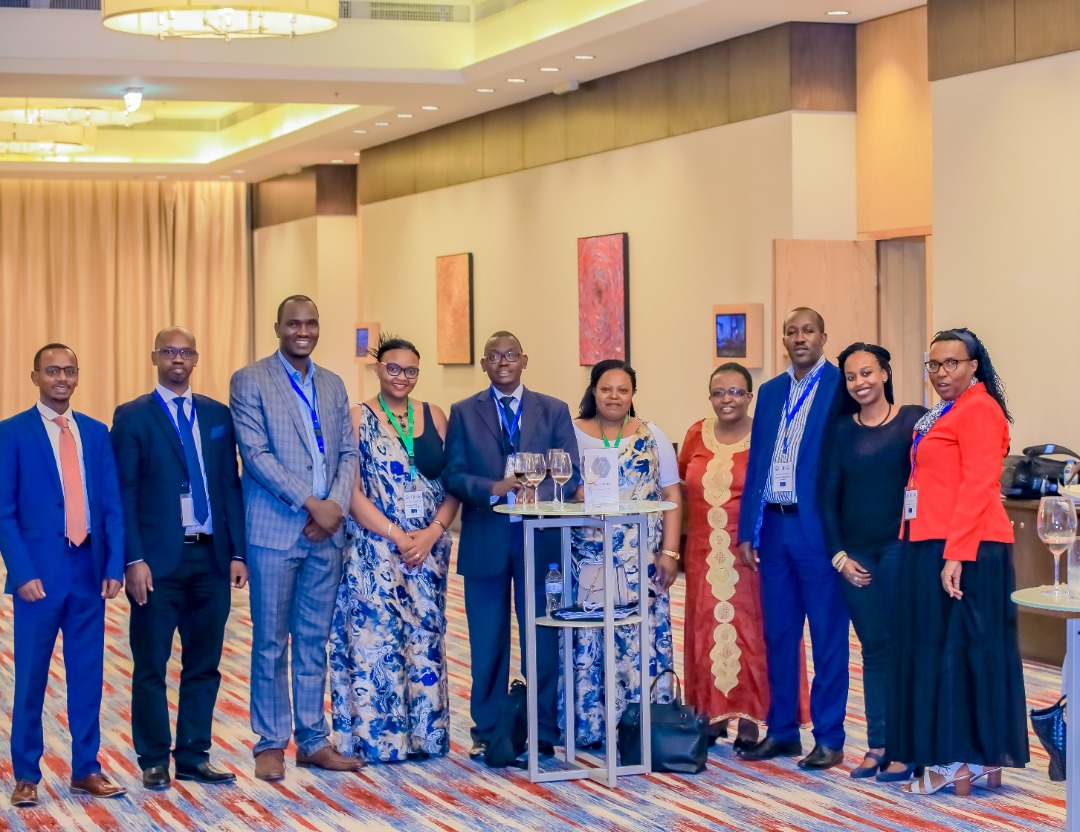Protecting Human Rights Within Rwanda’s Criminal Justice System
Organization Dignité en Détention (DIDE RWANDA) has conducted a second “CONSULTATIVE FORUM” aiming to assess the impact of “PROTECTING THE HUMAN RIGHTS WITHIN RWANDA’S CRIMINAL JUSTICE” project.
The project was funded by the European Union and conducted by DIDE RWANDA in partnership with RBJ (Rwanda Bridges to Justice), and was designed to support government and institutional efforts to build and maintain a fair and efficient criminal justice system that protects and respects the rights of every Rwandan citizen.
During deliberations at the forum, Nicola Bellomo, the EU Ambassador to Rwanda said, “As we take stock of the past 3 years of the project, as EU, our own assessment is very positive; the project outperformed its initial target of 300, with close to 900 vulnerable detainees at risk of abuse who have benefited from early legal assistance by lawyers.
The Regional Delegate of DIDE RWANDA said that during the project implementation the organization has provided Mental Health and pyscho-social support to more than 4050 cases.
The project was implemented in 5 prisons respectively: Nyarugenge, Bugesera, Rwamagana, Ngoma, and Nyagatare. Where DIDE RWANDA worked closely with RCS (Rwanda Correction Service).
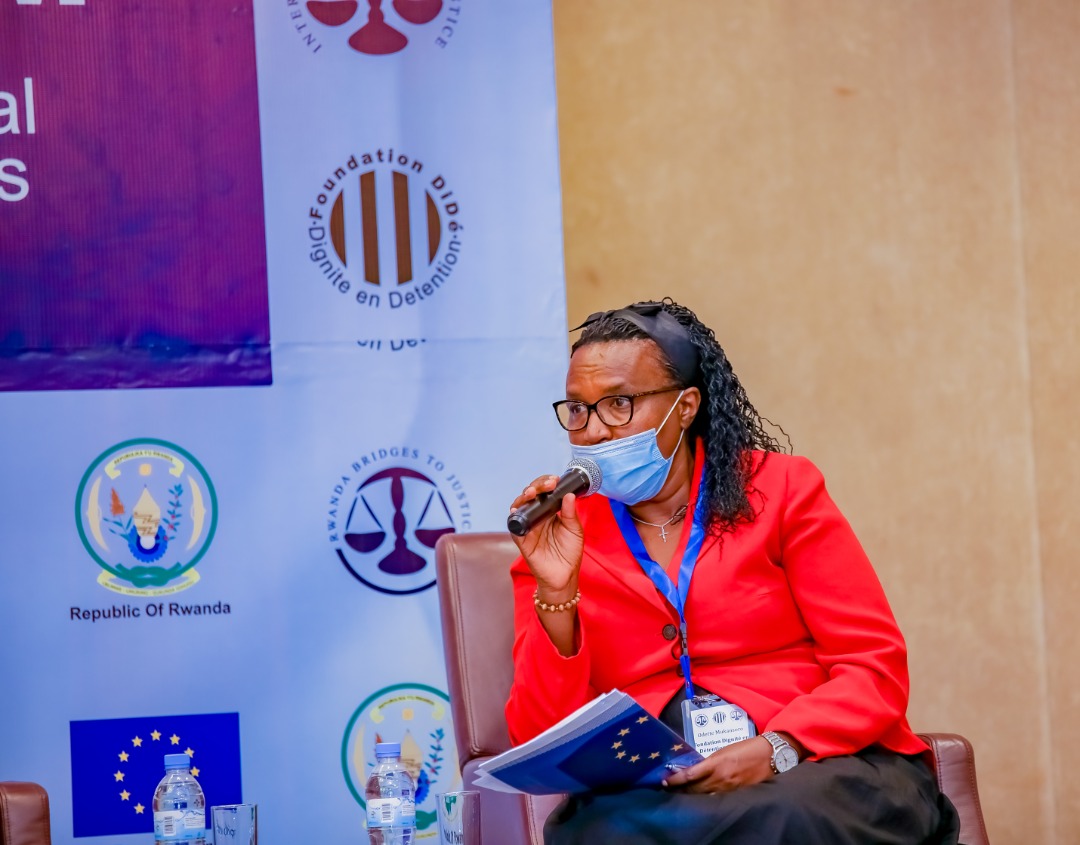
Above: Odette MUKANSORO/Executive Director-(DIDE RWANDA)
During deliberations at the forum, Nicola Bellomo, the EU Ambassador to Rwanda said, “As we take stock of the past 3 years of the project, as EU, our own assessment is very positive; the project outperformed its initial target of 300, with close to 900 vulnerable detainees at risk of abuse who have benefited from early legal assistance by lawyers.”
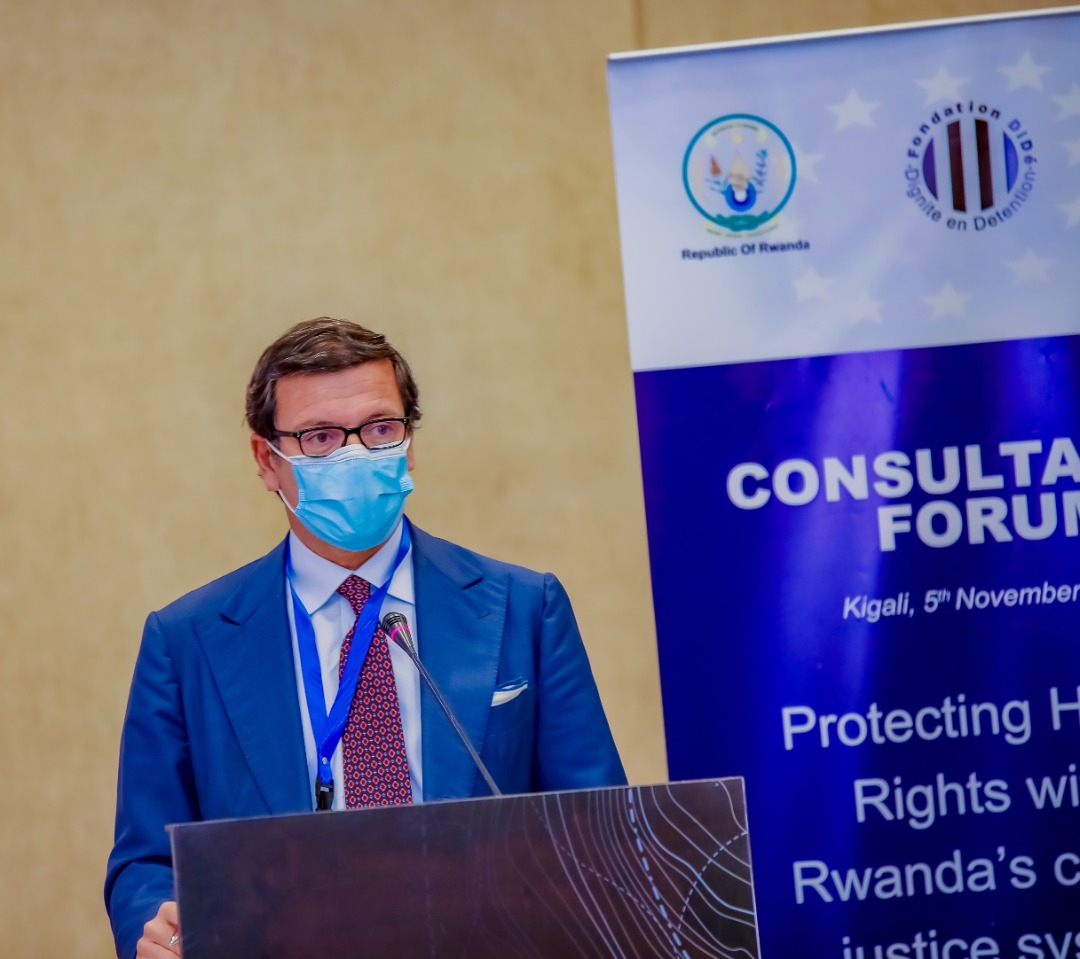
Above: NICOLA Bellomo/EU Ambassador to Rwanda
Bellomo noted that the EU was proud of all the work done by with DIDE RWANDA & International Bridges to justice in protecting human rights within Rwanda’s criminal justice system.
According to him, “While the population of Rwanda’s prisoners remains a concern, we hope prosecutors and judges will use more the existing alternatives to imprisonment without fearing of departing from what is seen as the norm or of being accused of corruption.
This forum hosted at Marriot Hotel, Kigali, drew officials from Rwanda Correctional Services leadership, Rwanda Bridges to Justice among other stakeholders. This project is implemented in partnership with International Bridges to Justice (IBJ) and financed by the European Union mission in Rwanda.
Project key achievements:
DIDE organized 8 orientation sessions (or training sessions) for 254 staff in the four prisons where DiDé had not worked before.
During these sessions, DiDé introduced the concepts of mental health and psychosocial well-being of prisoners and defined the role of each staff in the accompaniment of these prisoners from their entry to their liberation.
250 peer educators(Prisoners) were also recruited and trained taking into account the population of each prison as well as the necessary prerequisites to be selected. Among these prerequisites were in particular the motivation to occupy this function, the level of education, good character, the length of the sentence, etc…
58 new peer educators were trained too during the project implementation period to strengthen the team of peer educators already trained. The idea was also to fill the gap after the release of some peer educators who have been granted parole or those who are completing their sentences. The total number of peer educators trained is 308.
DiDé organized training workshops for 77 staff stakeholders in criminal justice institutions and staff who are in charge of mental health in prisons, in district hospitals and Neuro-psychiatric hospitals of Ndera.
Those training workshops aimed to equip criminal justice institutions, civil society stakeholders and Hospitals with basic skills on how to identify situations of trauma and/or psychological distress among accused and detainees.
77 support groups have been created in the five prisons which bring together a total of 924 people. The peer educators facilitated these groups. Co-facilitation and supervision of those groups has been conducted regularly by the DiDe psychologist in collaboration with the prison psychologist in order to build the capacities of these groups.
6 thematic workshops have been organized to strengthen the capacities of criminal justice stakeholders (lawyers, investigators from Rwanda Investigation Bureau, judges, prosecutors, psychologists, and RCS staff. This brings the total number of criminal justice stakeholders trained by this project to 238.
CHALLENGES:
At the beginning of the project, the main challenge met was a lack of infrastructure adapted to psychological consultations within the prisons.
The psychological consultation rooms built till now are not equipped
Some prison psychologists were not assigned to this position, they had other assignments so they did not have sufficient time for individual therapy. One of the responses was to favor the group approach over individual therapy but another challenge was:
The insufficient number of rooms where support groups are held limited number of groups despite the need that were on the field.
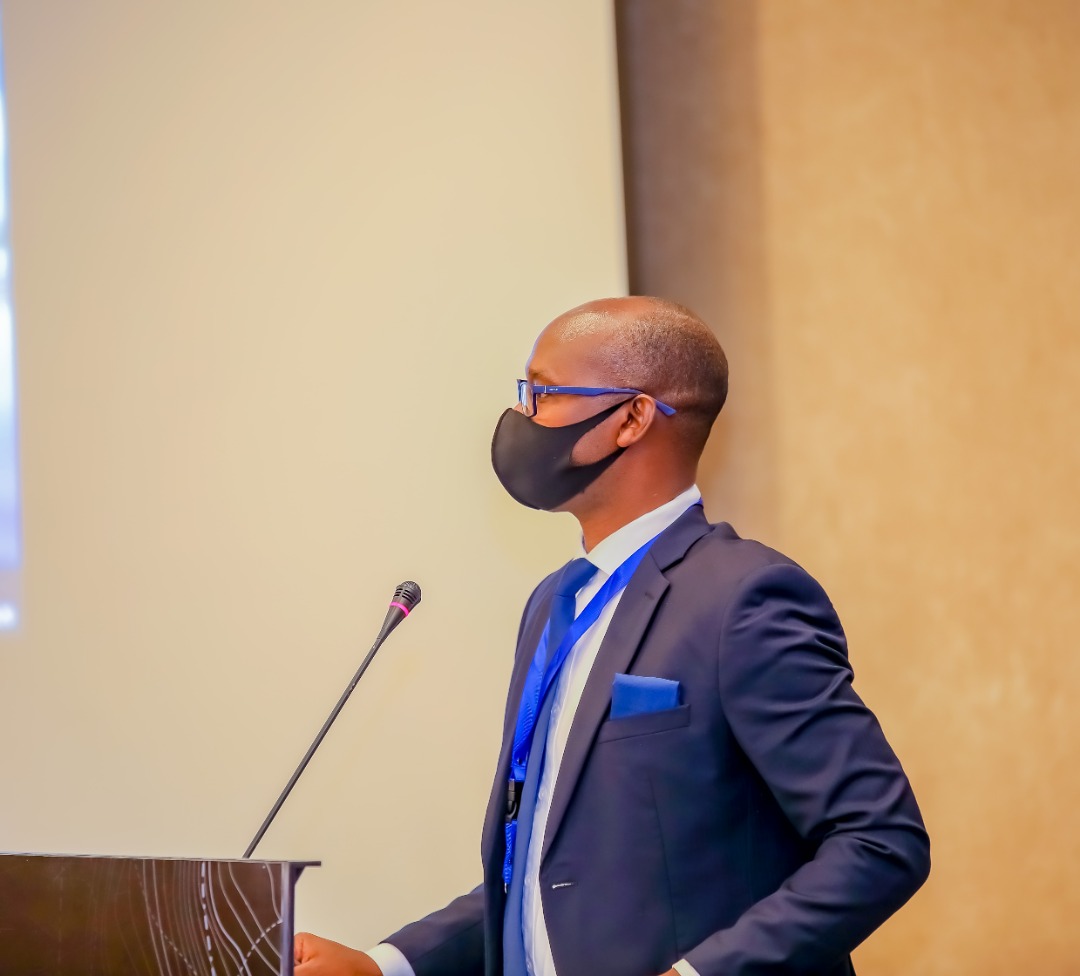
- Above: Jean Bosco BUGINGO/RBJ Director
According to the organizers, more than 200 lawyers, investigators from Rwanda Investigation Bureau (RIB) , judges, prosecutors, psychologists and staff from Rwanda correctional services also benefited from capacity building workshops, enabling better implementation of national and international standards that protect individuals from torture and other abuses.
Beneficiaries including a women released from prisons share their story in a testimony at the forum.
The beneficiary of the project a woman held at Ngoma Prison shared her experience with the participant, inciting how the Organization staff helped her with training and skills, and how she learned tailoring by the help of DIDE RWANDA.
She said life was difficult at the prison and she couldn’t cope with the life she found herself in.
After, she received mental and psycho-social support from DIDE and was able to start a new life inside the prison.
DIDE RWANDA helped her get access to a lawyer and was able to benefit from the justice. When she was released from prison she continued to benefit the help from the Organisation and received a Tailoring machine where she uses it to provide for her family.
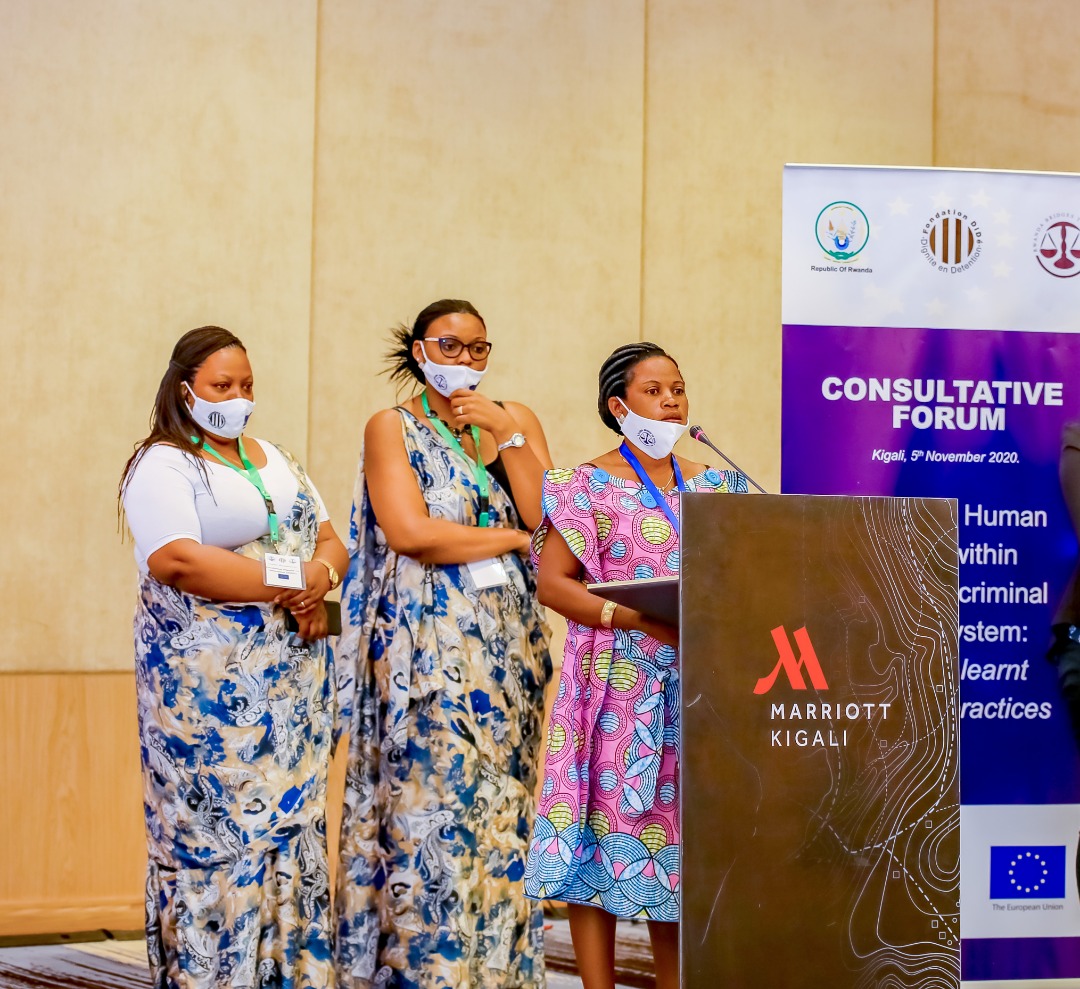
Above: Victim sharing her experience in a forum
Prosecutors and Judges said that there is a gap in the Rwandan Law system and there is no independence of judges to make decision based on their experience but to follow the law that is very old and prevent them to give Justice in its form.
However the Jurdical system has known a remarkable update in their function to deliver the best of the judgement and nowadays people have rights to lawyers and are provided one for free if needed.
The forum topics covered different area include the Human rights while in criminal justice system, Psycho-social support given to prisoners when they found themselves in prison.
How is Education and training have a big impact on the judicial system, this was highlighted by the Rwanda Bar Association.
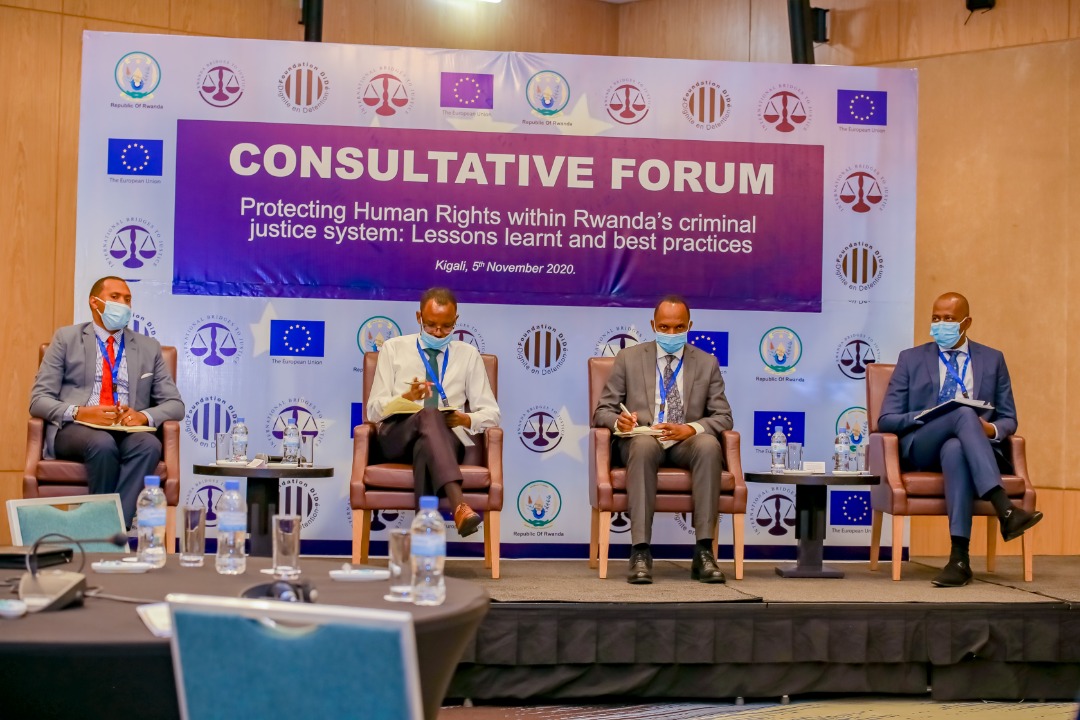
Above: Representative from Supreme Court, RIB, NPPA, And Rwanda Bar Association.
